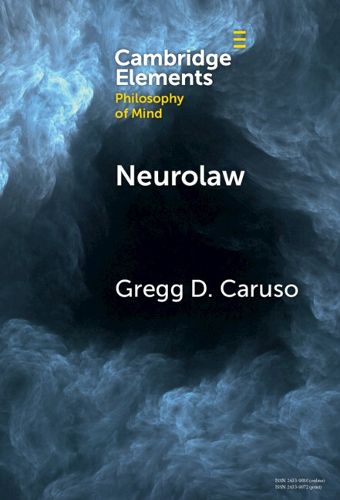Readings Newsletter
Become a Readings Member to make your shopping experience even easier.
Sign in or sign up for free!
You’re not far away from qualifying for FREE standard shipping within Australia
You’ve qualified for FREE standard shipping within Australia
The cart is loading…






Neurolaw is an area of interdisciplinary research on the meaning and implications of neuroscience for the law and legal practices. This Element addresses the potential contributions of neuroscience, and the brain sciences more generally, to criminal justice decision-making and policy. It distinguishes between three different areas and domains of investigation in neurolaw: assessment, intervention, and revision. The first concerns brain-based assessments, which may be used for predicting future violence, lie detection, judging legal insanity, and the like. The second concerns potential treatments and other interventions that aim at rehabilitating criminals and/or preventing crime before it occurs. The third investigates the ways that neuroscience may impact the law by changing or revising commonsense views about human nature and the causes of human action.
$9.00 standard shipping within Australia
FREE standard shipping within Australia for orders over $100.00
Express & International shipping calculated at checkout
Neurolaw is an area of interdisciplinary research on the meaning and implications of neuroscience for the law and legal practices. This Element addresses the potential contributions of neuroscience, and the brain sciences more generally, to criminal justice decision-making and policy. It distinguishes between three different areas and domains of investigation in neurolaw: assessment, intervention, and revision. The first concerns brain-based assessments, which may be used for predicting future violence, lie detection, judging legal insanity, and the like. The second concerns potential treatments and other interventions that aim at rehabilitating criminals and/or preventing crime before it occurs. The third investigates the ways that neuroscience may impact the law by changing or revising commonsense views about human nature and the causes of human action.